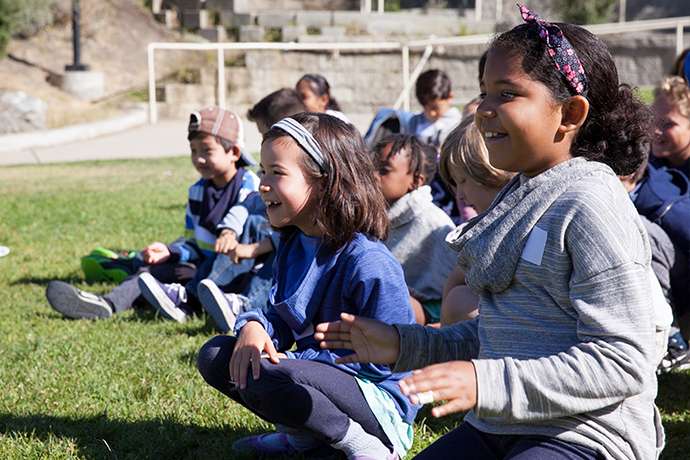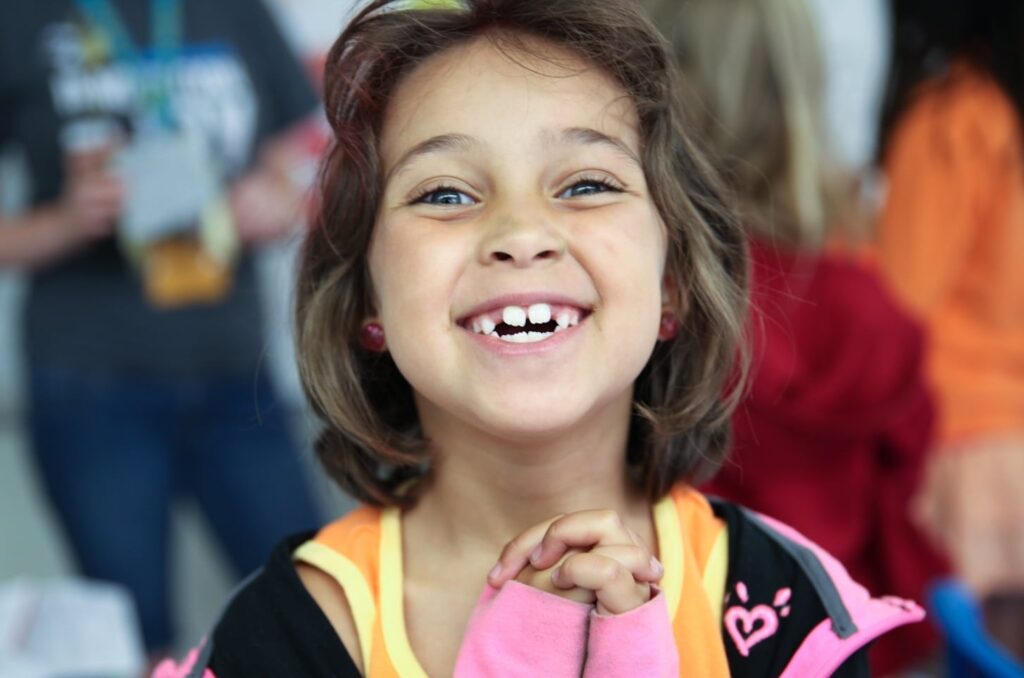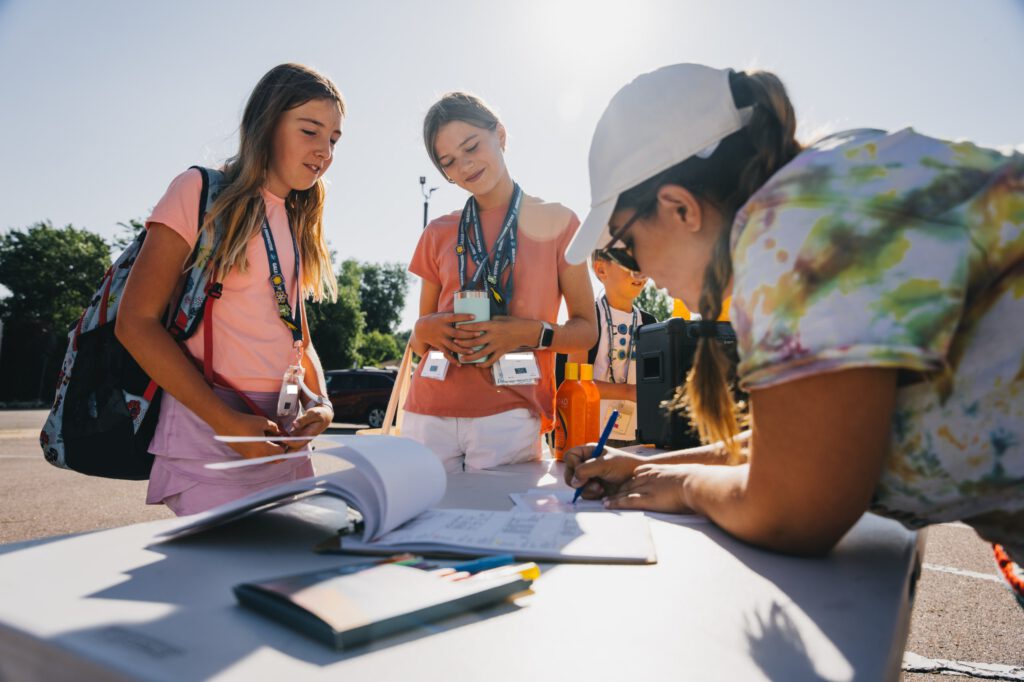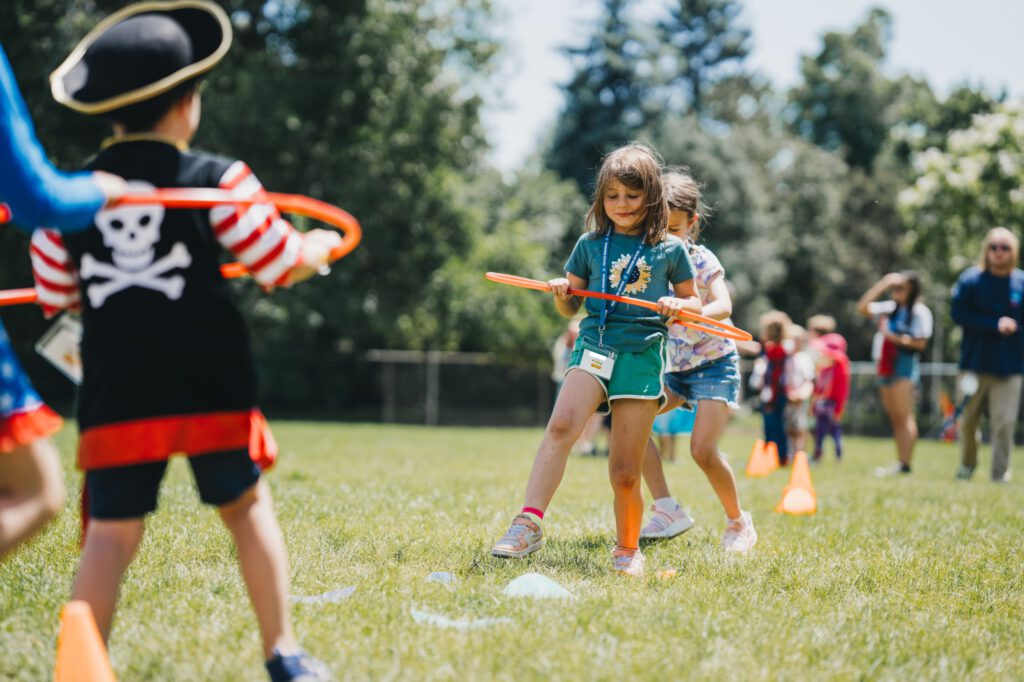Exploration. It is behind some of humankind’s most profound discoveries and most astonishing revelations. From the historical search for natural resources and expanded trade routes to the current quest for inhabitable planets beyond the Earth, curious explorers have ventured outside the security of their known environments in search of something new. That exploratory drive begins very early in human beings—think about how emerging hand-eye coordination allows infants to reach out and grasp objects in their world. It continues as curiosity motivates infants to crawl and toddlers to walk in search of answers to their questions. The power of exploratory learning drives many preschool programs and powers the best preschool summer camp activities, thus engaging little ones in developmentally-appropriate play. Understanding the importance of exploration for healthy development is critical.
DEFINING ACTIVE LEARNING GOALS
Parents can ignite kids’ passion for exploration by allowing the time and opportunities to satisfy their need to explore. With parents as their first teachers, kids learn a lot before formal schooling even begins. The Center for Childhood Creativity at the Bay Area Discovery Museum has defined seven learning goals that promote active learning for preschool kids. They are:
- Be curious — Understanding that curiosity is a natural, developmental force that drives kids’ exploration is an important starting point. When allowed to drive exploration with their own curiosity, kids are quite naturally and deeply engaged.
- Come up with ideas and try them out — When kids are encouraged to engage in open-ended inquiry, without a specific expected answer or designated solution pathway, they can engage in authentic problem-solving. They can be creative and test their ideas freely.
- Make thoughtful decisions — Providing kids with materials and tools as they explore allows them to design and test possible solutions. Their explorations are accompanied by thinking and processing new information.
- Communicate thinking — Parents can help kids communicate their thinking and develop language skills by asking thoughtful questions and giving them opportunities to express their ideas. Using real and specific vocabulary is important since young kids’ curiosity and interest make them ripe to learn.
- Take risks and persist through challenge — As preschoolers’ curious explorations prompt them to try new things, it is important to encourage them to persist through failures. A bit of encouragement and support to try again will help them bounce back when they do not succeed on the first try.
- Learn to collaborate — When little ones learn together through shared experiences, they practice social skills, including sharing, taking turns and conflict resolution. In pre-K and kindergarten, kids begin to cooperate to play and complete projects together.
- Build STEM knowledge — STEM learning is a natural fit for curious young children, as is creative expression through artistic media. Providing opportunities for them to enjoy science, technology, engineering and math exploration will keep them occupied for hours.
The Center’s website has a unique feature called the Creativity Catapult, that lists exploration activities that promote creativity. These “research-backed, expert-curated” activities can be filtered by age, topic, and desired skills developed.

Camp Galileo has summer camp programs that emphasize the power of exploratory learning for young kids. With four engaging themes to choose from, these weeklong explorations promote daily learning in science and art, as well as active outdoor play. Kids are grouped by age with pre-K and kindergarteners called Nebulas. Our 1st and 2nd graders are Stars and 3rd through 5th graders are Supernovas. Hands-on experience with a range of materials and tools lets kids indulge their curiosity while exercising creativity. The opportunity for active exploration enables kids to experience and observe with their senses, discuss the discoveries with their friends and construct their understanding of the world. Through scientific inquiry and artistic expression, kids engage in abstract thinking that builds spatial awareness, problem solving and language development. Research tells us that these profound explorations in early childhood, involving visual, language and motor skills, lay down strong neural pathways that build brain architecture to support all later learning to come.
The importance of exploratory learning cannot be underestimated. Providing opportunities to explore and learn through play is crucial for healthy brain development and social-emotional well-being. As kids follow their curiosity and try new things, they build strong neural connections that will play a key role in learning and behavior throughout life. And, equally important—exploratory learning is kid-driven and profoundly fun.
Check out the options for exploratory learning in your area: San Francisco, Southern California, and Chicagoland. Sign up for our mailing list to keep up-to-date on our camp happenings, innovation resources, and important registration information for next summer.



